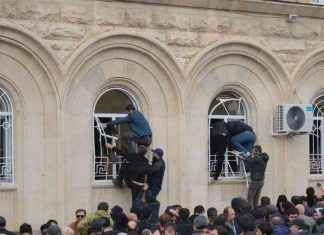the ROME – The University of Urbino can lay claim to the second online course and the most appreciated in the world. The recognition comes from an aggregator of the north-american and independent, ClassCentral (Mountain View, California), which has ordained over twenty thousand reviews on 2,400 of the Moocs, international, online courses, in fact, held in 2019, and followed by more than twenty million students.
The Italian course is “Human Digital”, is held by professor Alessandro Bogliolo, computer science, and interdisciplinary – Bogliolo has asked for support from time to time to ten colleagues for individual lessons – want to recover the deep meaning of the adjective “digital” in recognition of the tracks in the history of humanity.
The ranking of ClassCentral was published on January 26, the course of the University of Urbino is available in Italian language on a platform developed in the Academy. The course award winning part from the definition of the term “digital” to venture into a journey through time, starting from the Prehistoric times, recognizes in the human capacity of abstraction and symbolic representation, the origin and strength of each technology, including Computer science. “The’ digital everything that can be represented as a sequence of conventional symbols”, says Alessandro Bogliolo. “Starting from this definition, one can recognize the inherent digital language, writing and even music, fully understanding the central role that our capacity for symbolic representation and narration have had in the history of mankind”.
The course addresses the theme of digital complementary points of view, entrusted to university teachers and researchers with specific competencies in: Fabio Martini, paletnologo, Gloria Rosati, the famous egyptologist, Flavia Frisone, epigrafista, Edward Barbieri, a historian of the book, Giorgio Vallortigara, a neuroscientist, Cristina Pierantozzi, linguist, Alberto Casadei, the italianist, Roberto Giuliani, musicologist, Christian-Maria Bellei, anthropologist, Gabriele Marra, a lawyer.
The cycle of lessons is developed, together with the Rai School, which has produced a television program, “The digital economy”, whose episodes are available on Rai Play, are an integral part of the same Mooc. The course, accredited for the training of teachers, has been activated in 2019 and is freely accessible online at the address https://mooc.uniurb.it/digimooc/.
Alessandro Bogliolo is professor of Systems for the processing of information at the University of Urbino and in 2016, led the University to first place in the international ranking with the Mooc on “Coding in your classroom, now”, which has changed the landscape of training for teachers and contributed to the improvement of the relationship between the university and the school. “Teaching in the open is an extraordinary tool for scientific dissemination that pertains to the social responsibility of universities”, said Bogliolo. “I am convinced that the online course is the ideal instrument through which the university can offer to the system of training ideas and content first-hand.”
The Moocs were born at the University of Stanford in 2011, and in Italy, after the natural phase in the Far West mainly entrusted to the on-line universities, in 2018 has known for a more systematic approach and popular. In the world (data year 2017) the online lessons with the final exam are followed by 73 million users, not necessarily university-aged students. Today, there are an estimated 400 courses in the networks of Italian universities.
“The Republic will fight always in defense of the freedom of information, to its readers and to all those who have at heart the principles of democracy and civil coexistence”
Carlo Verdelli SUBSCRIBERS TO REPUBLIC © Reproduction reserved reader COMMENTS Today on the M5S in the anarchy: deferred to the States-general head of government to arrive until 2023 Gualtieri: “The Pd you open should not lose the moderates” Chaos in the centre-right, Salvini against a Dense, Caldoro: “Candidates ” losers” Trust is better
the Republic






